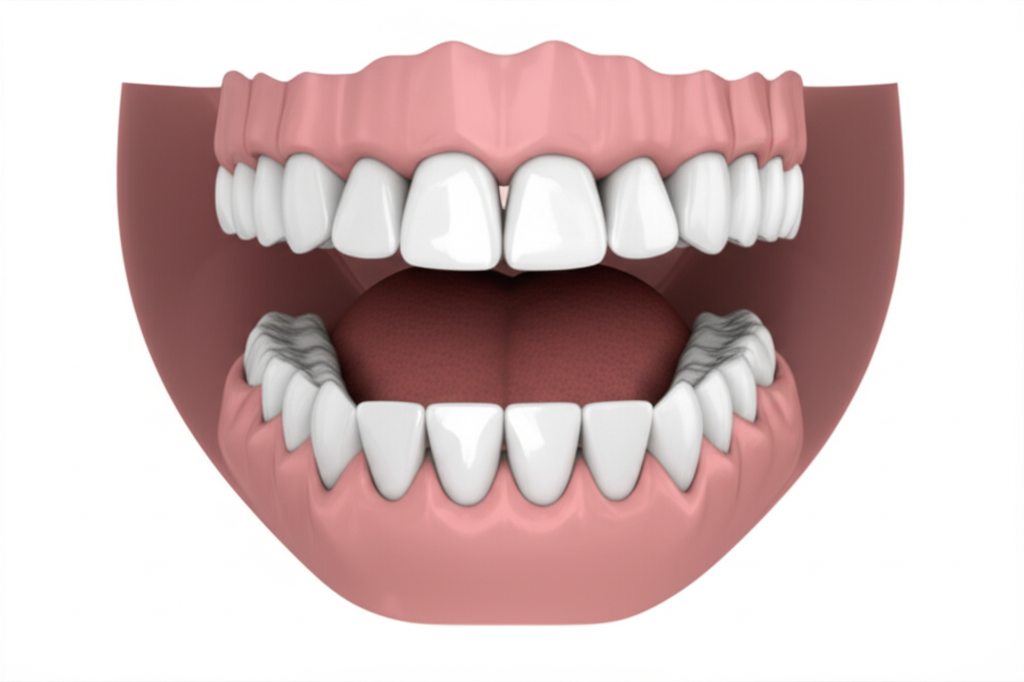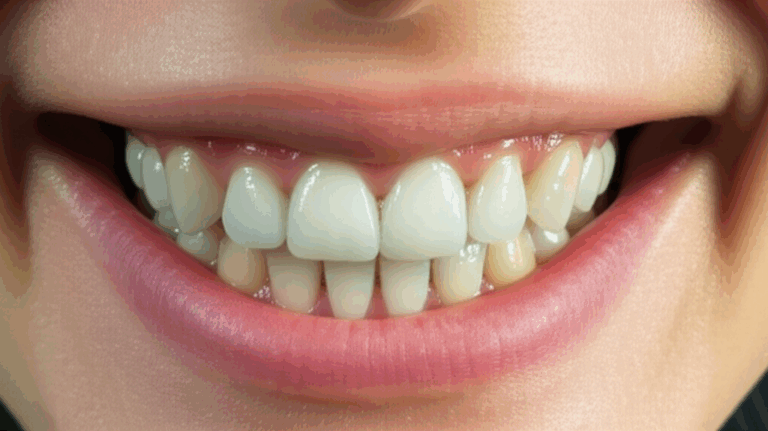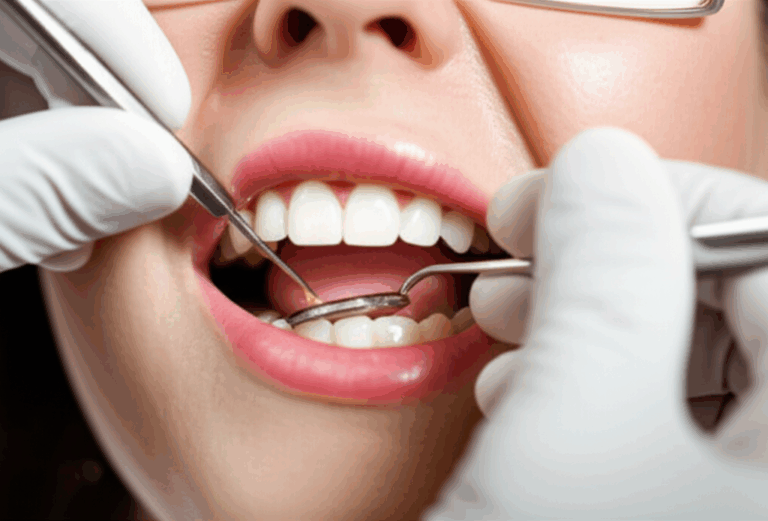
Dental Implant Eligibility: What Disqualifies You and What Are Your Options?
Have you ever wondered, “Am I able to get dental implants?” Maybe you’ve heard about the benefits and want to replace missing teeth. But not everyone is the perfect candidate. This guide will walk you through who can and can’t get dental implants, what the reasons are, and what to do if you’re not eligible. Plus, I’ll show you real options and easy solutions – I promise to make it simple!
Table of Contents
- What Are Dental Implants?
- Can Anyone Get Dental Implants?
- What Health Problems Stop You From Dental Implants?
- How Do Medicines Affect Dental Implant Success?
- Will Your Jawbone or Gums Hold an Implant?
- Can Lifestyle Choices Like Smoking Block Implants?
- Does Age Matter for Dental Implants?
- What Happens at My Dental Implant Visit?
- What If I Can’t Get a Dental Implant?
- How Can I Improve My Chances?
- Bullet Point Summary
- FAQ
What Are Dental Implants?
Dental implants are like little pegs for your new teeth. Dentists use them to swap out missing teeth. The dentist puts a tiny rod, usually made of titanium, into your jawbone. After it heals, a fake tooth sits on top. With the right care, implants can last a really long time.
Why do people want implants?
No one wants to struggle to chew their favorite foods or feel shy about gaps in their smile. Implants let you eat, talk, and feel better about yourself.
Reference: American Dental Association (ADA)
Can Anyone Get Dental Implants?
Here’s the truth: most people can get dental implants, but there are some rules. Your mouth and your health need to be ready for surgery and healing. Are there things that stop you? Yes, but some stuff can be fixed with help from your dentist or doctor.
Table: Who Might Be a Good Candidate?
| Factor | Good Candidate | Needs Looking At | Not a Candidate Now |
|---|---|---|---|
| Healthy gums & bone | ✓ | ||
| Uncontrolled diabetes | ✓ | If not handled | |
| Smoking a lot | ✓ | If won’t quit | |
| Under 18 years old | Jaw still growing | ||
| Gum disease | ✓ | If not treated | |
| On immune-suppressing medicine | ✓ | If not handled |
What Health Problems Stop You From Dental Implants?
Let’s say you want dental implants. But have health problems? This part is for you. Some health conditions make dental implants not safe or too risky.
Common Medical Reasons You Can’t Get Implants
1. Uncontrolled Diabetes
- Diabetes makes healing slow and raises the chance of infection after surgery.
- If your blood sugar keeps changing, your dentist might say wait until it’s under control.
2. Autoimmune Illness (like Lupus)
- These sicknesses can make you heal slower or get infections easier.
- Medicines for these sicknesses, called immunosuppressants or steroids, sometimes make the risk bigger.
3. Heart, Liver, and Kidney Problems
- If your heart is weak (recent heart attack), or your kidneys and liver are not doing well, surgery is harder and you heal slower.
- Your doctor will want you the healthiest you can be before implants.
4. Getting Treated for Cancer
- Radiation to the head or neck, or recent chemo, can hurt bone and soft tissue in your mouth.
- Some patients can have implants later, after treatment is done and healing is better.
5. HIV/AIDS
- If you don’t take medicine for HIV or your immune system is too weak, there’s a bigger chance for infections.
Agitate:
Imagine spending money, facing surgery, and then not healing – or even worse, getting a bad mouth infection.
How Do Medicines Affect Dental Implant Success?
Some medicines may quietly make things worse. You might not even notice.
The Big Three:
- These are for osteoporosis and bone trouble.
- Can cause a rare problem called osteonecrosis of the jaw (bone loses blood and dies).
- Tell your dentist if you are taking these.
- These thin your blood so you don’t get clots.
- Can cause too much bleeding during or after surgery.
- Doctors often change your dose a bit before surgery.
- Used for arthritis, lupus, or organ transplant.
- Make it harder to fight infection and slow things down when healing.
Tip: Always make a list of your medicines and bring it when you see the dentist!
Will Your Jawbone or Gums Hold an Implant?
Dental implants need something solid to hold onto – that’s your jawbone.
Common Problems:
1. Not Enough Jawbone
- No good bone to put the peg into? That’s a big problem.
- Dentists may recommend a bone graft. That’s when they add bone to your jaw. After it heals, you could still get implants.
2. Active Gum Disease
- Gum disease (periodontitis) can lead to infection around your new tooth (peri-implantitis).
- Dentists have to fix gum problems before putting in an implant.
3. Loose Teeth or Cavities That Aren’t Fixed
- You can’t get an implant if your mouth is full of other infections or loose teeth.
4. Really Bad Tooth Grinding (Bruxism)
- If you grind your teeth a lot, you could break an implant. Wear a night guard if your dentist says to.
Learn more about night guard solutions at night guard dental lab.
PAS in Action:
The problem is not enough strong bone or healthy gums. This makes implants not work. That’s scary! But the solution is often as easy as getting gum treatment or a bone graft.
Can Lifestyle Choices Like Smoking Block Implants?
Yes! The habits you have now can make a big difference. Let’s keep it simple.
Smoking
- Smoking hurts gums, slows healing, and raises the chance of infection.
- Studies show smokers’ implants fail about twice as much as non-smokers.
- Quitting even two weeks before and after surgery helps a lot.
Drinking a Lot or Using Drugs
- Alcohol and some drugs can make your body heal badly.
- They can also make it hard to go to dental checkups or brush your teeth right.
Dental Hygiene
- If you don’t keep your teeth clean, your implants are more likely to fail.
- Brush, floss, and see your dentist often.
Real Life Example:
Think about spending money and time on new teeth just to lose them because of smoking or not brushing!
Does Age Matter for Dental Implants?
People often ask: “Am I too old or too young?”
Too Young?
- Kids and teens whose jaws are still growing (usually under 18) should wait.
- If you’re a parent, ask your dentist about timing.
Too Old?
- There’s no age that’s “too old,” as long as you’re healthy. Folks in their 70s, 80s, even 90s get implants and do well.
- Your dentist will look at your health history before saying yes.
What Happens at My Dental Implant Visit?
If you’re thinking about implants, here’s what your first visit might look like.
Step 1: Talk About Your Health
- The dentist will ask about your health, medicine, allergies, and habits.
- It’s fine to be honest. They want you safe!
Step 2: Dental Exam & X-Rays
- The dentist checks out your gums, teeth left, and bone.
- Might take X-rays or a 3D picture (CBCT).
Step 3: Talk About Your Choices
- Your dentist will tell you the risks, good sides, and other choices, like bridges or dentures.
- If you’re not ready for implants, they’ll help you make a plan.
Check out details on teeth replacement options available at crown and bridge lab.
What If I Can’t Get a Dental Implant?
Don’t lose hope. Many people still get a full smile even if implants don’t work out.
Fixing the Problem
- Work with your doctor to control sickness like diabetes.
- Stop smoking. Ask your dentist for help or tips.
- Get gum treatment or maybe a bone graft.
Trying Other Solutions
1. Dental Bridges
- Bridges fill the gap left by lost teeth using support from nearby teeth.
- They’re a good choice for people who can’t get implants.
2. Removable Dentures
- Replace a few teeth or a whole row.
- Today’s dentures are much better and look real.
3. Partial Dentures or Night Guards
- If you only need to swap a few teeth or protect new work, there are special options.
Problem: Not allowed implants?
Agitate: Missing teeth can make eating tough and make you less happy.
Solution: Bridges or dentures can help! You don’t have to live with gaps.
How Can I Improve My Chances?
You might ask, “Can I do anything?” Yes! Here’s what helps:
- Take Care of Health Problems: Keep blood pressure, sugar, and heart things steady.
- Quit Smoking: Even cutting down helps a lot.
- Upgrade Dental Hygiene: Brush, floss every day. Don’t skip cleanings.
- Ask About Bone Grafts: Weak bone? Ask about your choices.
Bullet Point Summary
- Dental implants replace missing teeth but need your mouth and body to stay healthy.
- Long-term sickness like uncontrolled diabetes or heart trouble may block you, but getting them handled can help.
- Drugs such as steroids, bisphosphonates, and blood thinners can slow healing.
- Jawbone strength and gum health really matter: weak bone or gum disease is a warning sign, but often can be fixed.
- Smoking and not cleaning your teeth raise the chance of implants not working—quit and brush for better odds.
- Age won’t stop you, but kids must wait for full jaw growth and older adults need healthy bones.
- Not allowed? There are other options, like bridges and newer dentures.
- See a dentist or specialist for a full look-over and honest advice.
FAQ
Q: Can I get dental implants if I have diabetes?
A: If your diabetes is under control, probably yes. Uncontrolled diabetes has to come first.
Q: What if I don’t have enough bone for an implant?
A: Your dentist may suggest a bone graft, which can build up your jawbone for the implant.
Q: Do allergies stop me from implants?
A: Hardly ever! Most people don’t react to titanium. Always tell your dentist about your allergies, though.
Q: Is smoking a total no for implants?
A: Smoking makes implants way more likely to fail. Stopping or even cutting down helps.
Q: Are there good choices instead of dental implants?
A: Yes! Bridges and removable dentures work great for many people.
Remember, dental implant eligibility is personal. The best advice always comes from an experienced dental team. Don’t be afraid to ask questions—your smile is worth it!








